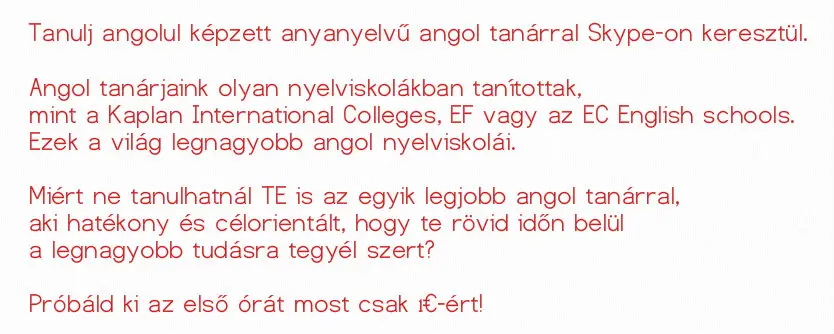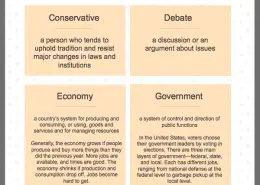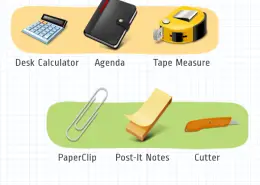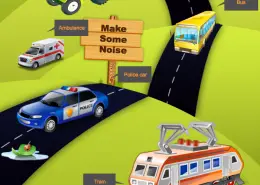Can Could Közötti Különbség és Rengeteg Példa
 A can és could képességet, megengedést, kérést, ajánlatot vagy lehetőséget kifejező modális segédige.
A can és could képességet, megengedést, kérést, ajánlatot vagy lehetőséget kifejező modális segédige.
A could eredetileg a can múlt idejű alakja, de a can funkcióinál többre is használható, például feltételes mondatokban.
Példák:
– She can speak English very well. (képesség)
= Ő jól beszél angolul.
– I could ride a bike, but I couldn’t swim when I was seven years old. (képesség)
= Tudtam biciklizni, de nem tudtam úszni, amikor 7 éves voltam.
– You can have a coffee break after you type these letters. (megengedés)
= Tarthatsz kávészünetet miután megírtad ezeket a leveleket.
– Could I have some more salad with the meat? (kérés)
= Kérhetek salátát hússal?
– Can I help you? Can I carry your bag? (ajánlat)
= Segíthetek? Vihetem a táskáját?
– It could rain this afternoon. (lehetőség)
= Eshet az eső ma délután.
– This can’t be true. (negative lehetőség)
= Ez nem lehet igaz.
– We could get there in time if you were driving a bit faster. (feltétel + képesség/lehetőség)
= Oda érhettünk volna időben, ha kicsit gyorsabban vezetsz.
A can és could segédigét folyamatos jelen kifejezésére is használjuk az érzékelést jelentő (see = lát, hear = haé, feel = érez, taste = kóstol, smell = szagol stb.) és az understand = ért, remember = emlékszik, stb. típusú igéknél:
– Can you see the woman standing over there?
= Látod a hölgyet, aki ott áll?
– We were so near the sea that I could hear the seagulls.
= Annyira közel voltunk a tengerhez, hogy hallottam a sirályokat.
– When she entered the kitchen, she could smell something burning.
= Amikor belépett a konyhába, azt érezte, hogy valami ég.
– I put my keys to a safe place before swimming, but now I can’t remember where.
= Biztonságos helyre raktam le a kulcsaimat úszás előtt, de most nem emlékszem hova.
She couldn’t understand what the foreigner was saying.
= Nem értette, mit mond a külföldi.
A could a can múlt idejű alakjaként múltbeli általános képesség kifejezésére utal és függő beszédben használható:
– When she was younger, she could work for ten hours without stopping.
= Amikor fiatal volt, 10 órán keresztül tudott dolgozni egyfolytában.
– He said he could get his wife to come to the football with us.
= Azt mondta, rátudja venni a feleségét, hogy eljöjjön focimeccsre velünk.
Egyszeri alkalomhoz kapcsolódó képesség kifejezésére csak tagadó mondatban használjuk:
– How many goals were you able to score on Sunday?
– They managed to get to the station in ten minutes by taking a taxi.
– I was able to find all the words in the dictionary, still I couldn’t translate the text.
Kérésben, utasításban és javaslatban a could udvariasabb, mint a can:
– Can I use your phone?
– Could you please do me a favour?
– Do you think you could help me for a few minutes?
– Do the washing first, then you can clean your room.
– When you’ve finished the letter, you could translate this article, if you like.
– If you haven’t got anything to do this afternoon, you could clean the car.
Engedély kérésekor a could udvariasabb, mint a can. Engedélyadásra a could-ot nem használjuk:
– Can/Could I ask you something? – Yes, of course you can.
– You can go now if you want to.
– Can I stay here for another hour? – No, I’m afraid you can’t.





